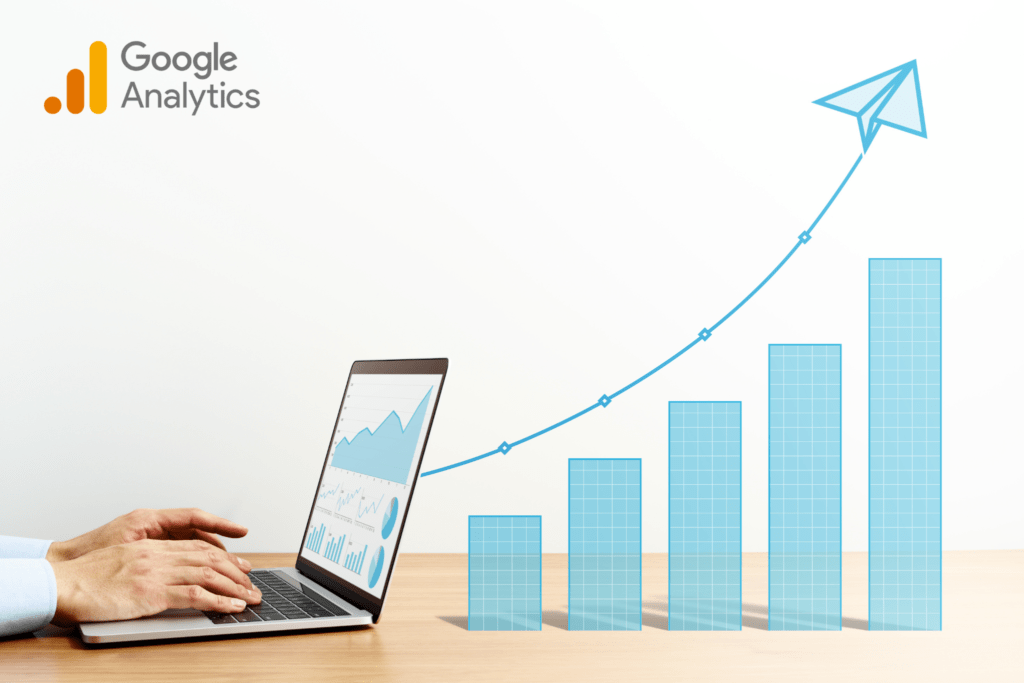Ever wondered how some businesses seem to nail their online marketing while others struggle? You’re not alone. I’ve been there, scratching my head and wondering, “How do they do it?” Well, let me introduce you to performance marketing – it might just be the game-changer you’re looking for.
So, What Exactly is Performance Marketing?
Performance marketing is all about getting results. Plain and simple. It’s a type of digital marketing where you only pay when specific actions happen – like someone clicking on your ad, signing up for your newsletter, or buying your product.
Think of it like this: You’re not just throwing money at ads and hoping for the best. Instead, you’re saying, “I’ll pay you when someone actually does what I want them to do.” Pretty neat, right?
It’s like hiring a salesperson who only gets paid when they make a sale. You’re not wasting money on efforts that don’t produce results. This approach makes performance marketing a powerful tool for businesses of all sizes.
Why Should You Care About Performance Marketing?
Here’s the deal:
- You’re not wasting money on ads that don’t work
- You can track exactly what’s happening with your marketing
- It’s easier to see your return on investment (ROI)
- You can reach your target audience more effectively
- It’s flexible – you can start small and scale up as you see results
I remember when I first started using performance marketing. It was like turning on a light in a dark room. Suddenly, I could see exactly what was working and what wasn’t. No more guesswork or crossing my fingers hoping for the best.
Types of Performance Marketing
There are a few different flavors of performance marketing:
- Affiliate Marketing: Like having a bunch of salespeople working for you, but you only pay them when they make a sale. Imagine having an army of bloggers, influencers, and websites promoting your product, but you only pay when they drive a sale. It’s a great way to expand your reach without upfront costs.
- Pay-Per-Click (PPC): Those ads you see on Google? That’s PPC. You pay when someone clicks. It’s a quick way to get in front of people who are actively searching for what you offer. I’ve seen businesses transform their traffic overnight with a well-run PPC campaign.
- Social Media Advertising: Facebook, Instagram, Twitter – you can run performance-based ads on all of these. The targeting options are incredible. Want to reach 30-year-old dog owners in Seattle who like yoga? You can do that.
- Native Advertising: Ads that blend in with the content around them. They’re less “in your face” than traditional ads. Ever seen those “recommended articles” at the bottom of a news site? That’s often native advertising.
- Email Marketing: While not always considered traditional performance marketing, email can be highly performance-driven when you focus on metrics like open rates, click-through rates, and conversions.
How to Get Started with Performance Marketing
Ready to dip your toes in? Here’s a simple way to start:
- Set clear goals. What do you want to achieve? More sales? More leads? Brand awareness?
- Choose your channels. Where does your audience hang out online? Don’t try to be everywhere at once. Start where your audience is most active.
- Create compelling ads. What will make people want to click? Remember, you’re competing for attention in a busy digital world.
- Track everything. Use tools like Google Analytics to see what’s working. Data is your best friend in performance marketing.
- Adjust and improve. Keep tweaking to get better results. Performance marketing is all about continuous improvement.
The Metrics That Matter
In performance marketing, data is king. Here are some key metrics you’ll want to keep an eye on:
- Click-Through Rate (CTR): How many people are clicking on your ads?
- Conversion Rate: Of those who click, how many are taking the desired action?
- Cost Per Acquisition (CPA): How much are you spending to acquire each customer?
- Return on Ad Spend (ROAS): For every dollar you spend, how much are you getting back?
- Lifetime Value (LTV): What’s the total value of a customer over time?
Understanding these metrics will help you make informed decisions about where to invest your marketing budget.
FAQs About Performance Marketing
Q: Is performance marketing expensive? A: It can be as expensive or as cheap as you want. You set the budget. The beauty of performance marketing is that you can start small and scale up as you see results.
Q: Do I need to be a tech whiz to do this? A: Nope! There are plenty of user-friendly tools out there. While some technical knowledge can be helpful, many platforms are designed with beginners in mind.
Q: How quickly will I see results? A: It depends, but you can often start seeing data within a day or two of launching a campaign. However, it may take a few weeks or months to really optimize your campaigns for the best results.
Q: Can performance marketing work for any type of business? A: In most cases, yes. Whether you’re B2B or B2C, selling products or services, there’s likely a performance marketing strategy that can work for you.
Q: How is performance marketing different from traditional marketing? A: The main difference is in how you pay and measure results. Traditional marketing often involves upfront costs with less precise measurement. Performance marketing is all about paying for specific actions and measuring everything.
The Pros and Cons of Performance Marketing
Let’s keep it real. Like anything, performance marketing has its ups and downs.
Pros:
- You only pay for results
- It’s highly measurable
- You can start small and scale up
- It’s flexible and adaptable
- You can reach very specific audiences
Cons:
- It can be time-consuming to manage
- There’s a learning curve
- You need to constantly monitor and adjust
- It may not be ideal for all branding goals
- Ad fatigue can set in if you’re not regularly refreshing your content
Real Talk: Is Performance Marketing Right for You?
Here’s my honest take: If you’re willing to put in some effort to learn and you want to see clear results from your marketing, performance marketing could be a great fit.
But if you’re looking for a “set it and forget it” solution, this might not be for you. Performance marketing requires ongoing attention and tweaking.
It’s perfect for businesses that:
- Want to see a clear ROI from their marketing efforts
- Have specific, measurable goals (like increasing sales or leads)
- Are willing to test, learn, and adjust their strategies
- Have a product or service that can be effectively promoted online
Success Stories: Performance Marketing in Action
Let me share a couple of quick stories to show you the potential of performance marketing:
- A small e-commerce store I worked with was struggling to compete with bigger players. We set up a targeted PPC campaign focused on long-tail keywords (very specific search terms). Within three months, their online sales had doubled, and their cost per acquisition was half of what it had been with their previous marketing efforts.
- A B2B software company was having trouble generating leads. We created a native advertising campaign that offered a free whitepaper in exchange for contact information. The campaign generated 50% more leads than their previous strategies, at a 30% lower cost per lead.
These are just a couple of examples, but they show how powerful performance marketing can be when done right.
Tools of the Trade
To succeed in performance marketing, you’ll need some tools in your arsenal. Here are a few popular ones:
- Google Analytics: For tracking website performance
- Facebook Ads Manager: For creating and managing Facebook and Instagram ads
- Google Ads: For PPC advertising on Google
- Mailchimp or Constant Contact: For email marketing campaigns
- Ahrefs or SEMrush: For keyword research and SEO analysis
Don’t feel like you need all of these right away. Start with the basics and add more as you grow.
Wrapping It Up
So, what is performance marketing? It’s a way to make your marketing dollars work harder for you. It’s about getting real results and knowing exactly what’s working.
Whether you’re a small business owner trying to make every dollar count, or a marketing pro looking to up your game, performance marketing is worth considering. It’s not magic, but it’s pretty close.
Remember, the key to success in performance marketing is to start small, test a lot, and never stop learning. Set clear goals, choose your channels wisely, create compelling ads, and always keep an eye on your data. With persistence and a willingness to adapt, you can achieve great things with performance marketing.
Who knows? You might just become the next performance marketing success story. So why not give it a shot? Your future customers might be just a click away.

